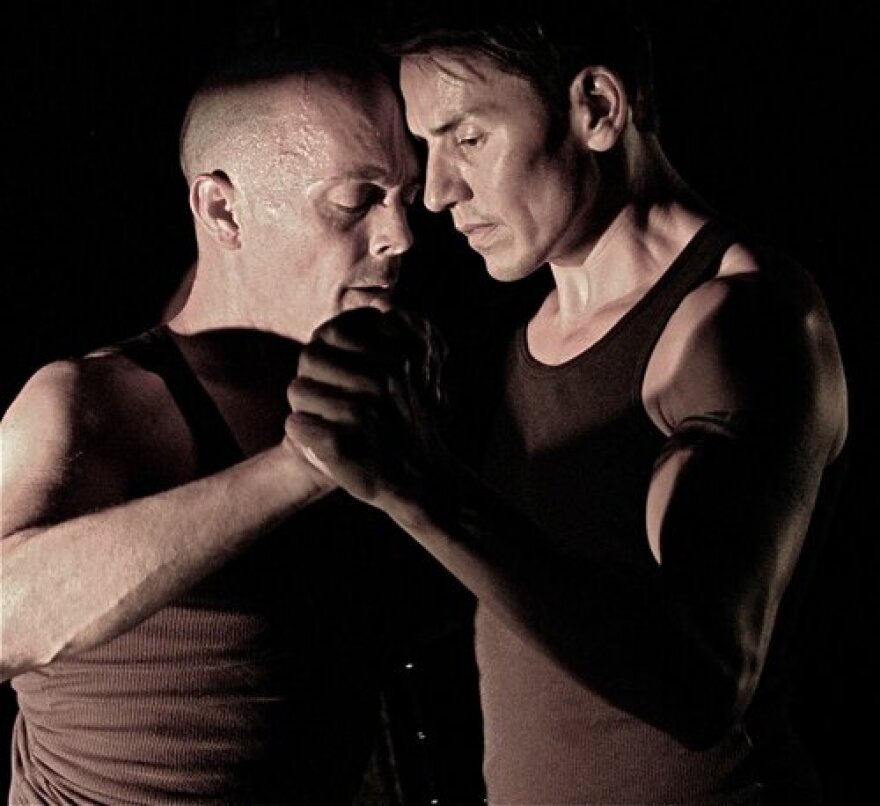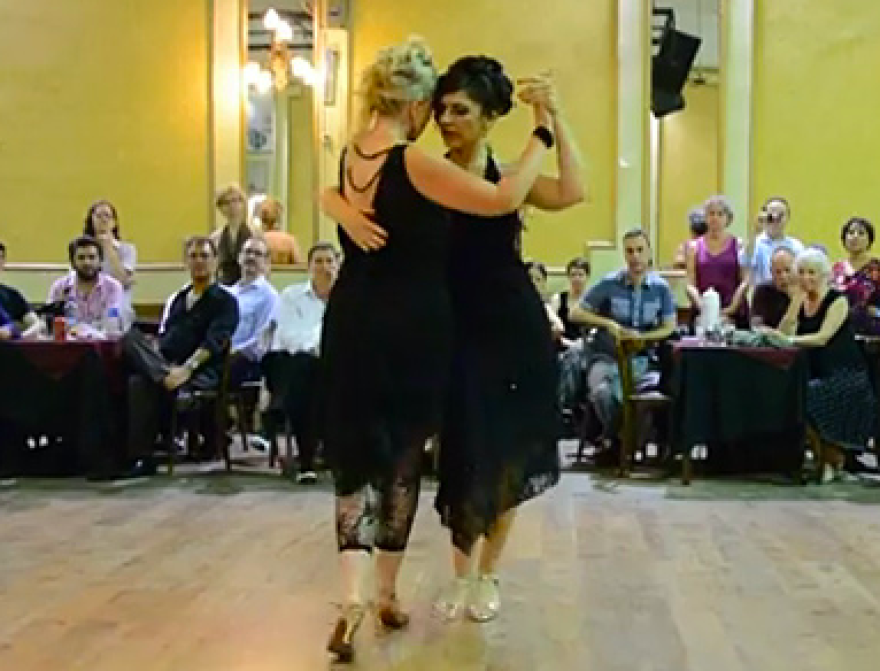The elegant and sensual Argentine dance known as tango is especially popular in Miami. Milongas, or tango gatherings, are a staple of South Florida's Latin music and dance scene. But for years, many in the LGBTQ community felt shut out of the milonga mix — thanks largely to tango's traditional emphasis on male and female dance roles.
That is changing. This week the Miami International Queer Tango Festival opens in-person in Miami Beach. WLRN's Tim Padgett spoke with the festival's artistic director, Miami choreographer and dance instructor Ray Sullivan, about what he calls the LGBTQ community's creative relationship with tango dancing, and why that community needs its own tango event.
As the pandemic continues, you can rely on WLRN to keep you current on local news and information. Your support is what keeps WLRN strong. Please become a member today. Donate now. Thank you.
Here are excerpts from their conversation, edited for clarity:
PADGETT: So Ray, Miami's first two Queer Tango festivals were in 2020 and 2021, but because of the pandemic they were online. This year's is the first in person, and it's actually part of an international circuit of Queer Tango festivals. How did this movement get started?
SULLIVAN: In the early '90s, when I would go to a milonga in Buenos Aires, there were no same-sex couples in the building; you would you would have to leave. The LGBTQ community was not welcome.
But there was a big shift in the early 2000s, and it began the way a lot of these things begin: Classes and then eventually organizing, and then somebody starts a milonga and then eventually there's festivals, especially in Argentina but also Germany, which has been amazing when it comes to this culture. In fact, we're excited to have Astrid Weiske here this week. She's the organizer in Berlin, which is now the largest Queer Tango festival.
We'll also have Mariana Docampo from Argentina, who's a founder of the Tango Queer Project. She'll be presenting her book "Tango Queer Buenos Aires."
READ MORE: Two to tango: arch-romantic Argentine dance is a fresh Valentine's option
PADGETT: You were working as a ballet choreographer in Argentina in the 1990s when you say you fell in love with tango. Why?
SULLIVAN: I think there's a universal thing that can make people fall in love with tango, which has to do with the embrace and connection and the idea of improvising with people on a dance floor. I think there's a lot of parallels to life in it.
PADGETT: And that love stayed with you when you came here to work for the Miami City Ballet school?
SULLIVAN: Absolutely. Around 2004, I started to teach tango — and to explore this concept of nontraditional, alternative tango. That's when I really got into choreographing two men together, two women together, changing roles. I really became passionate about that.

PADGETT: In those days, did gay and trans tango dancers feel excluded from the South Florida scene?
SULLIVAN: There were people in the milongas that definitely frowned on it, who definitely were not really happy about the fact that two guys were dancing together, yes.
We have a beautiful tango community here filled with lovely people who have been unbelievably accepting to me. But society tends to exclude, and that often happens completely without people individually meaning to do it. But they definitely saw tango as a man and a woman doing X, Y or Z.
Many LGBTQ people thought a lot about tango before they were ever allowed to do it. They do it with a lot of passion and creativity because it's something they weren't allowed to do before.Ray Sullivan
PADGETT: And is that why it's important for the LGBTQ community to have its own event like the Queer Tango festival?
SULLIVAN: Although now there is a lot of acceptance, the queer community needs safe spaces where topics can be talked about that specifically affect our community. It's really important that there is a portion of tango festivals that are queer but well put together.
NON-BINARY DANCE
PADGETT: Today I know many tango instructors encourage heterosexual couples to break out of the male "lead" and female "follow" tradition. How do same-sex or nontraditional dance partners approach those different tango roles?
SULLIVAN: People are going to learn to lead and follow. Some will have a tendency to go more towards one or the other. But that openness for the LGBTQ community is really important because people learn the incredible, beautiful feeling of both leading and following that has nothing to do with a binary concept of sexuality.
I very much believe that a lot of times people who have been most marginalized actually are able to bring the most creative gifts. What the LGBTQ community brings to tango is that you have a lot of people who thought a lot about this before they were ever allowed to do it. And they usually do it with a lot of passion, dedication and love — and a lot of creativity — because it's something that they weren't allowed to do before.

PADGETT: Let's take as an example a complicated tango step like la barrida, or the brush, where the lead dancer sweeps the follow dancer's foot to the side and their legs do this graceful and kind of flirtatious cross.
SULLIVAN: Well, when you switch the roles it becomes a sort of investigation. When the follower starts leading it's not just, "Oh, they changed dance positions." They can both start creating a sort of mix of something in between lead and follow. It becomes more fun, actually.
PADGETT: So that creativity will play out at this week's Miami Queer Tango festival in classes, milongas and performances by tango stars like Nicolás and Germán Filipeli. They were the first non-traditional tango dancers to win a top three prize at the Tango World Cup in Buenos Aires a few years ago, right?
SULLIVAN: Yes. I was there when they won that third-place prize. Almost lost my voice. You know — amazing.
The Miami International Queer Tango Festival starts Thursday night, April 7, in Miami Beach with a class and milonga at the Lincoln Eatery. It runs through Sunday with classes, milongas, roundtables and performances at Hice Hall. For more information, go to miamiqueertangofestival.com/events/




